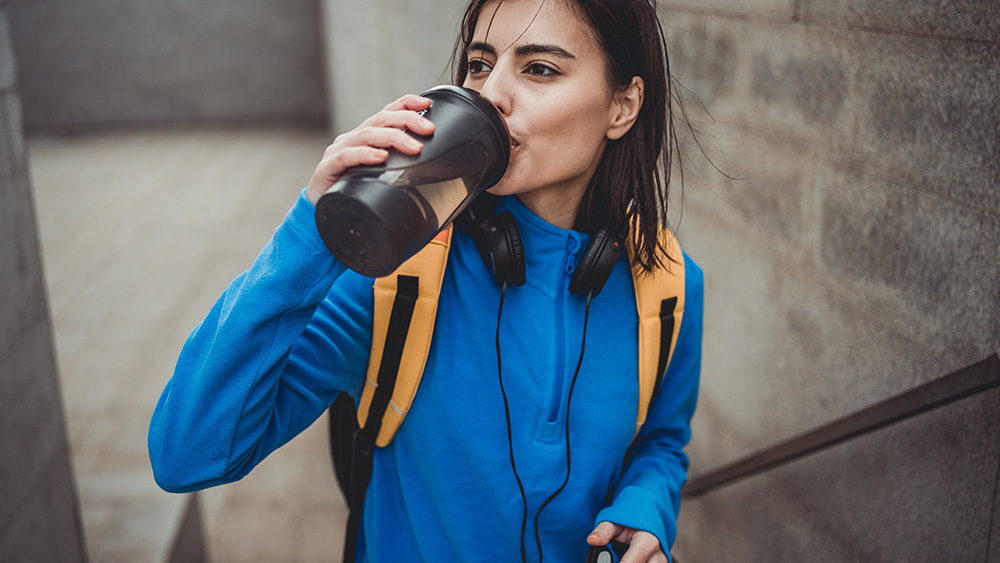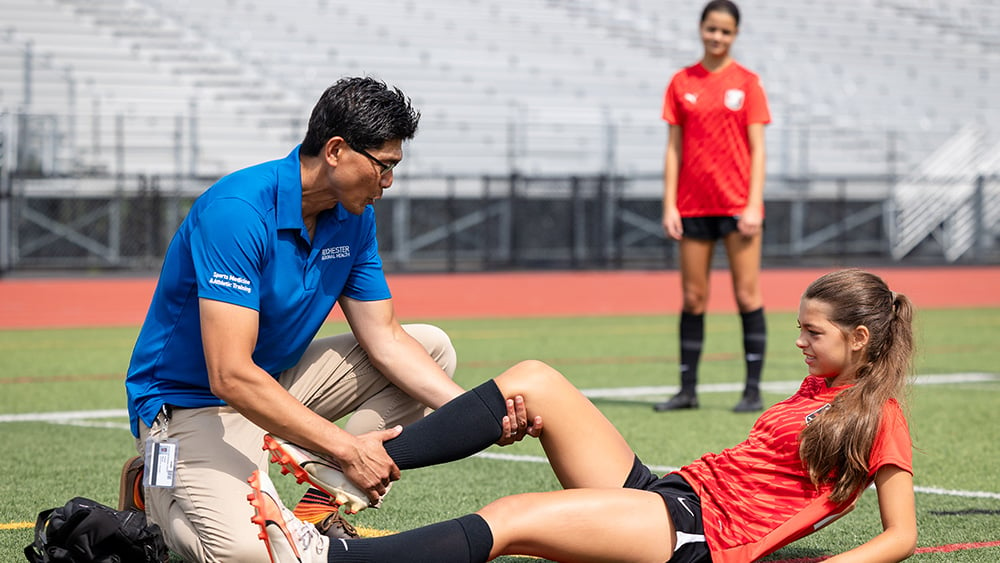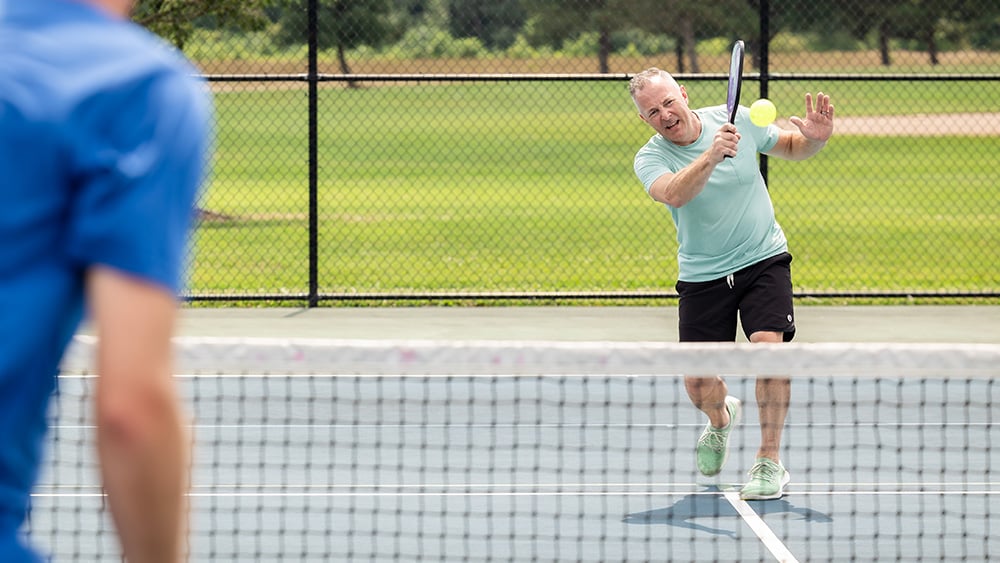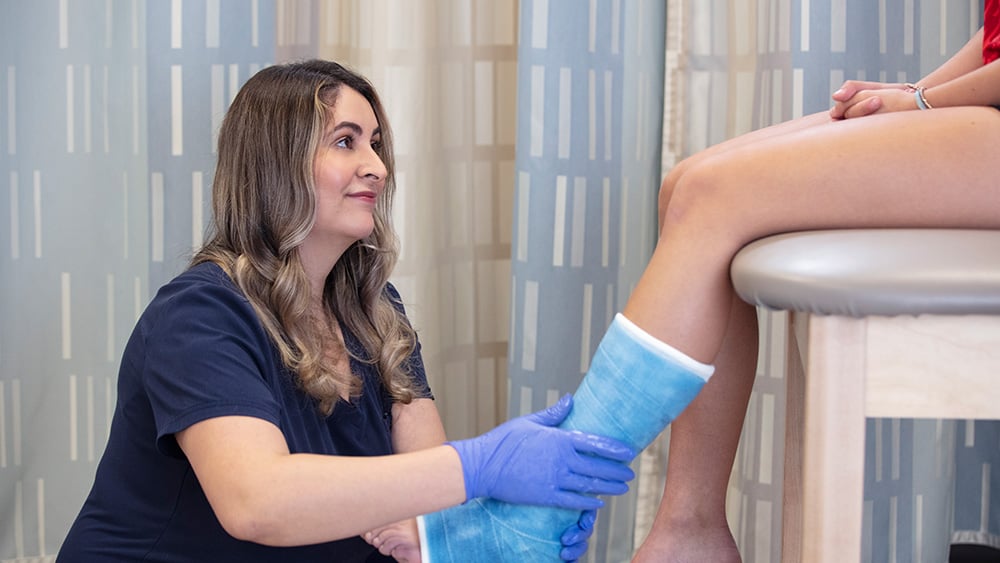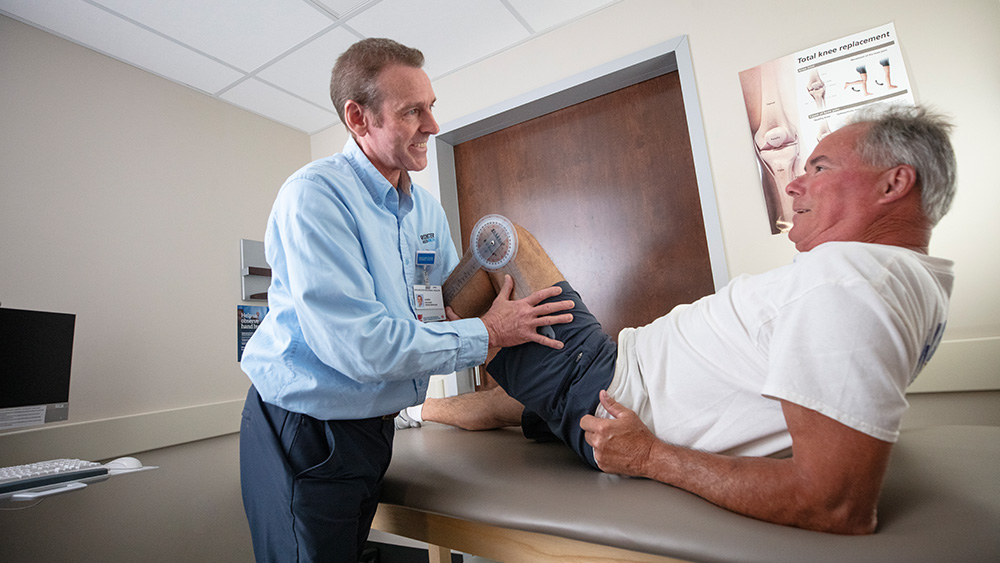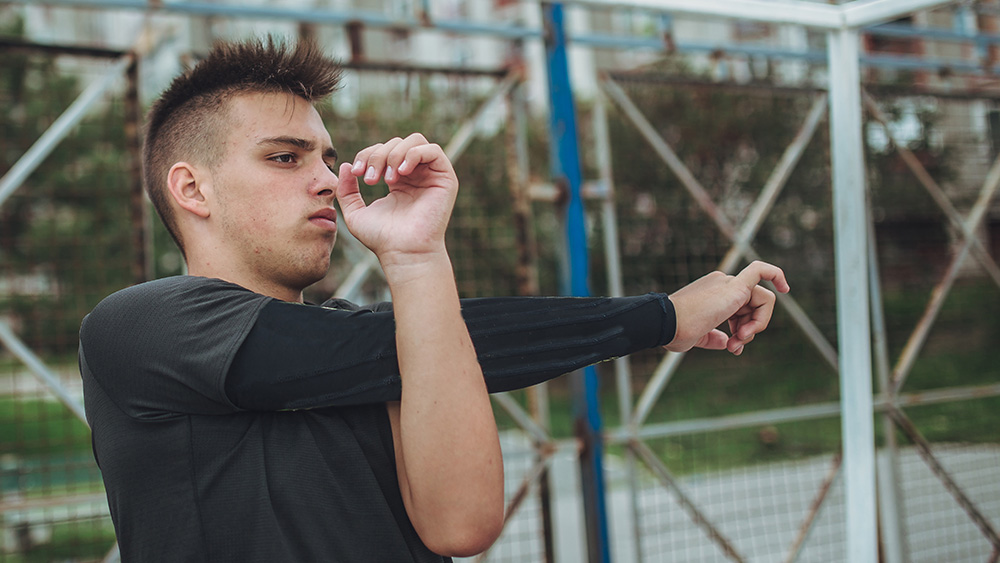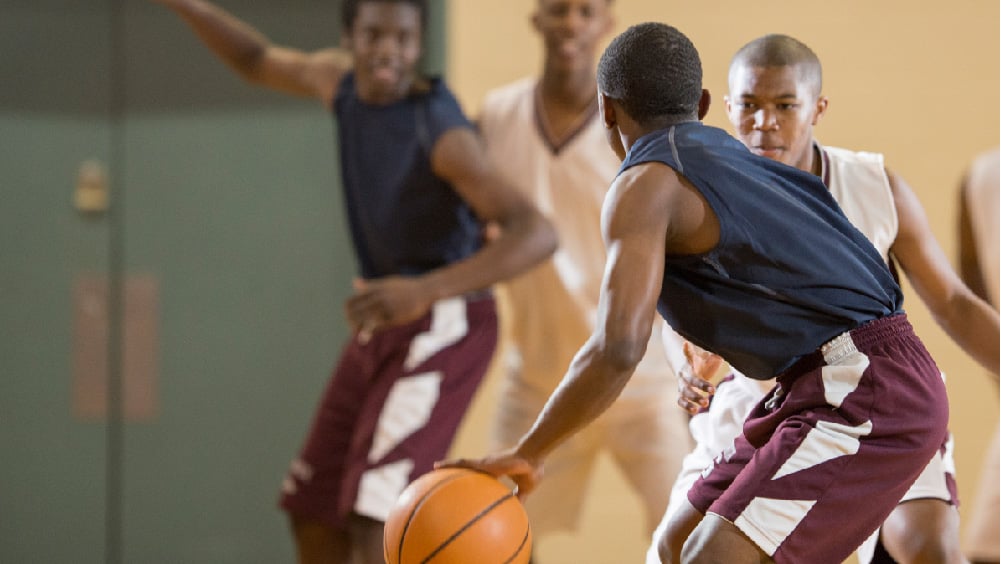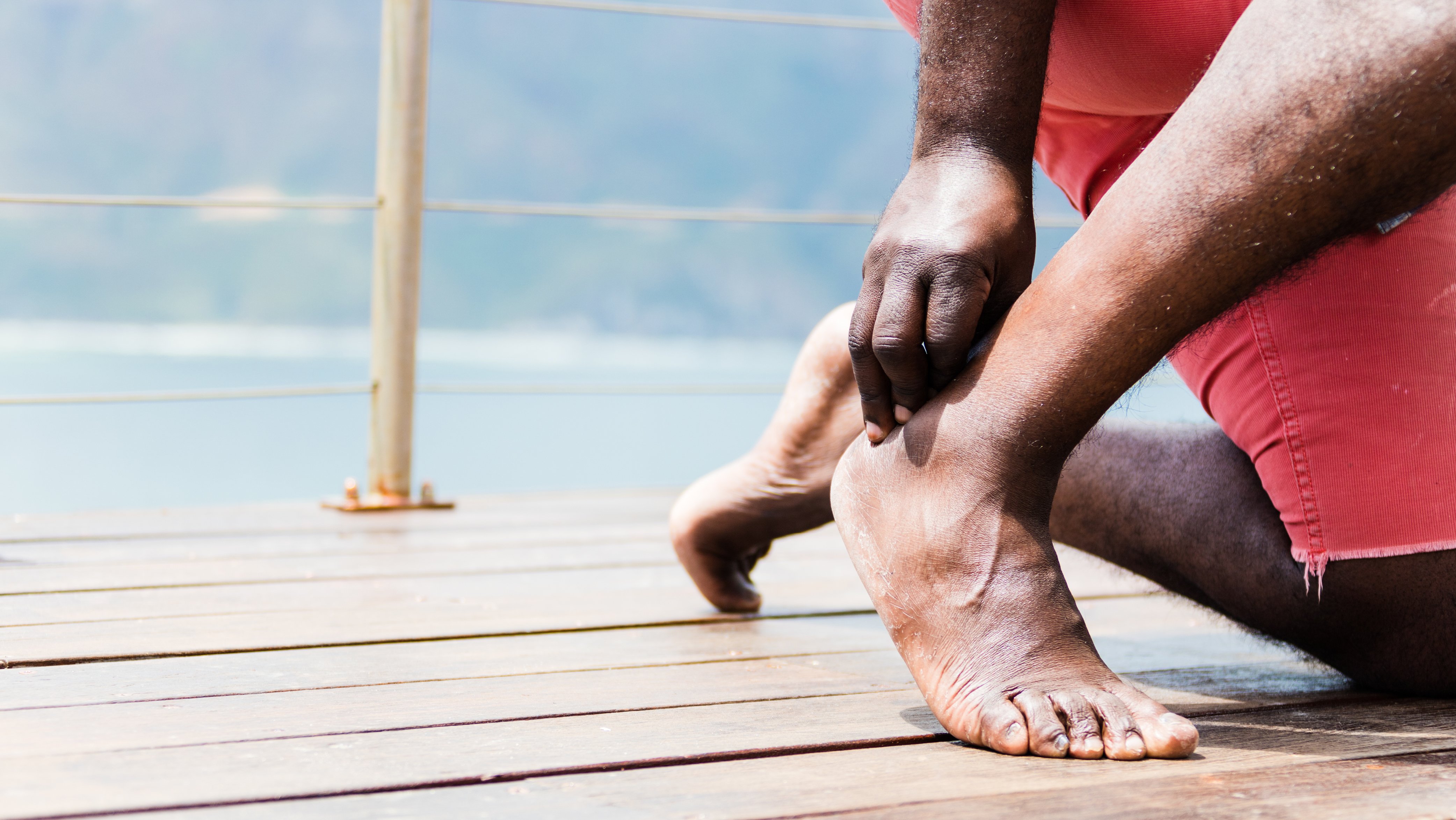Key Takeaways
- Caffeine does show at least some benefit to exercise, especially with aerobic exercise.
- There are plenty of ways to take caffeine, including energy drinks, gels, caffeinated chewing gum, caffeine capsules, mouth rinses and more.
- Most people take caffeine 60 minutes before a workout to get the best effects.
Caffeine is a very popular stimulant – roughly 90% of people living in the U.S. drink, eat, or consume it in some form on a regular basis.
While caffeine is often used as a way to begin the day, people also use it for exercise to give themselves a boost. So how well does caffeine actually work with exercise?
Kate Grant, DO, is a sports medicine physician who works at our Orthopedics location in Victor and explains the benefits of taking caffeine, different ways you can take it, and precautions to take to ensure you don’t use too much.
Benefits of caffeine for athletes
When taken before exercise, research shows caffeine has a positive effect in several ways.
Muscle endurance and strength: A review of several studies by the International Society of Sports found athletes who took caffeine before had small to moderate effects on muscular endurance, movement velocity and muscular strength, sprinting, and jumping.
Improved aerobic endurance: Studies show caffeinated drinks have a moderate to large effect on aerobic endurance, including running, cycling, and swimming.
More attentive and vigilant: People who exercise with relatively lower doses of caffeine are able to better maintain physical and cognitive capabilities, according to one study.
Longer training sessions: While caffeine doesn’t directly boost a person’s maximum oxygen capacity, researchers found taking caffeine during a training session does let them train longer and more strenuously. Doing this for over the course of a training period could help to increase their endurance.
Better reaction time/agility: Jumping ability, reaction time, and agility all saw boosts in one study of male soccer players who took caffeine.
“When utilizing caffeine, an athlete may have a decreased perception of exertion, decreased pain and an increased endorphin release,” Dr. Grant said. “Feeling better during training sessions may make it easier to stay consistent and therefore could help to increase their endurance. Caffeine supplementation seems to be most beneficial for aerobic endurance athletes, but the amount can vary.”
How to take caffeine before workout
Over the years, companies have begun to explore new ways of integrating caffeine into food, snacks, and drinks that can be consumed before and during exercise.
Caffeinated drinks are the most popular form of consuming the stimulant; other ways to take in caffeine include:
- caffeinated chewing gum
- caffeine capsules
- energy gels and chews
- mouth rinses
- pre-workout supplements
Most people will take it 60 minutes before starting a workout; this is when experts say it tends to have the best effect on exercise.
Determining the right amount of caffeine to take before your workout or activity can be tricky. Research shows caffeine will boost performance when taken between 3 and 6 mg per kg of weight. This would mean a 150-lb. person would need between 204 and 408 mg of caffeine to see effects start to happen.
For reference, there is approximately 95mg of caffeine in a single 8 oz. cup of coffee.
“When using caffeine during activity, it should be taken with carbohydrates to increase the efficacy,” Dr. Grant said. “There are individual factors such as genetic variation, and physical and psychological response that can influence the athlete’s response to caffeine. Their habitual caffeine intake can also affect the response, including both the benefits and adverse effects.”
Precautions to take with caffeine and exercise
There is a tipping point when taking too much caffeine can have a negative effect on your exercise or athletic performance.
Taking, for example, 9 mg of caffeine per kilogram of body weight instead of lower amounts is associated with more side effects such as poor sleep quality, GI issues, faster heartbeat, muscle soreness, or headache.
Children should be strongly discouraged from using caffeine supplements, especially energy drinks. There can be numerous adverse effects such as insomnia, anxiety, headache and risk of addiction.
“Kids will often use these supplements as a substitute for sleep, which can negatively affect health and lead to poor habits,” Dr. Grant said.
If you have questions about specific caffeine products or other methods of boosting your athletic performance, ask your primary care provider or a sports medicine physician.

